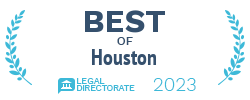If you have been charged or may be facing charges of Promotion of Child Pornography in Houston, you will need an experienced attorney that can give you the best possible legal defense. In Texas sexually, based crimes against children are very serious and can carry harsh sentences. Our legal team led by Board Certified Attorney Grant Scheiner will listen to the specifics of your case and give you the best possible plan to ensure a positive outcome to protect your freedom and your legal rights.
This offense is usually called “Child Porn” or “Kiddie Porn.” It is normally more serious than mere Possession of Child Pornography and usually relates to the number of visual images a person is accused of possessing and or whether the person transfers the images (including digital photos and digital video) to others.
As with Possession of Child Pornography, there is special Texas discovery rules that determine how a defense attorney may inspect (but usually not possess) evidence in the case. Due to the legal complexity of the charge and the technological complexity relating to how case evidence is discovered, copied, transferred and stored by law enforcement agents and prosecutors, a person accused of Promotion or Possession of Child Pornography should retain a defense lawyer with experience in the subject matter and an understanding of computers and technology.
The latest technology used to locate, identify and apprehend those promoting child pornography is extremely advanced and you will definitely need an attorney that knows what the prosecutors will have at their disposal to use against you in their attempt to secure a conviction against you. Special task forces set up to monitor crimes against young children are always monitoring the internet and use IP address to identify peer to peer networks that share and distribute illegal images. In addition, hash values that can narrow geographical locations of the offenders help locate people who are suspected of the promotion of child pornographic material.
These technologies have proven to be very accurate and often help agencies obtain search warrants which will allow them to search your premises or confiscate your computer, electronic file storage or printed materials found at your premises. Law enforcement agencies work with the National Center for Missing and Exploited Children to compare the information they obtain electronically with the known providers. Attorney Grant Scheiner is a Former Chair of the Computer & Technology Section of the State Bar of Texas and is fully knowledgeable about these technologies and how to best defend you against promotion charges.
About Promotion of Child Pornography
Child Pornography charges may be brought in federal or state courts. Federal child pornography charges are usually only applicable when the alleged conduct occurs in a federal jurisdiction (such as a federal park or a Post Office) or when the alleged conduct involves interstate commerce or foreign commerce.
A prosecutor’s or arrest agency’s choice of whether to file a charge in federal court or state court can have a significant effect on the outcome of the case. In some instances, a charge filed in one type of court may be “removed” or dismissed and re-filed to a different type of court.
In Texas, Promotion of Child Pornography is a Second Degree Felony if it is shown on the trial of the offense that the person has been previously convicted one time of an offense under that subsection. It is punishable by 2-20 years imprisonment and a fine of up to $10,000. It carries lifetime sex offender registration. The offense is escalated to a First Degree Felony if it is shown on the trial of the offense that the person has been previously convicted two or more times of an offense under that subsection.
What Is Promotion of Child Pornography
A person commits Promotion of Child Pornography if the person knowingly or intentionally possesses (with intent to “promote”) visual material that visually depicts a child younger than 18 years of age at the time the image was created and depicts the child engaging in sexual conduct. Tex. Pen. Code § 43.26.
Promote means to procure, manufacture, issue, sell, give, provide, lend, mail, deliver, transfer, transmit, publish, distribute, circulate, disseminate, present, exhibit, or advertise or to offer or agree to do any of the aforementioned. See Tex. Pen. Code § 43.25. A person who possesses visual material that contains six or more identical visual depictions of a child is presumed to possess the material with intent to promote the material. Tex. Pen. Code § 43.26.
It is a defense to prosecution that the accused is a law enforcement officer or a school administrator, who possessed the visual material in good faith solely as a result of an allegation of a violation; allowed other law enforcement or school administrative personnel to access the material only as appropriate based on the allegation; and, took reasonable steps to destroy the material within an appropriate period following the allegation.
What Should I do If I Have Been Charged
It is important to know that you have legal rights and options when it comes to a legal defense. You should never talk to or give any information to law enforcement agencies until you have consulted with a qualified lawyer that can give you your best legal options. It is also important to remember that any information you give will more than likely be used in your prosecution when the case goes to trial.
Contact the Legal Team at the Scheiner Law Group who will take the time to listen to the specifics of your case and investigate all of the details listed in the charges. We understand this type of charge can have its own challenges including the negative impact on your family, your employment and the relationships you have in the community. That is why it is very important to get the best possible defense which we can offer.
It is a defense to prosecution that the accused is a law enforcement officer or a school administrator, who possessed the visual material in good faith solely as a result of an allegation of a violation; allowed other law enforcement or school administrative personnel to access the material only as appropriate based on the allegation; and, took reasonable steps to destroy the material within an appropriate period following the allegation.














